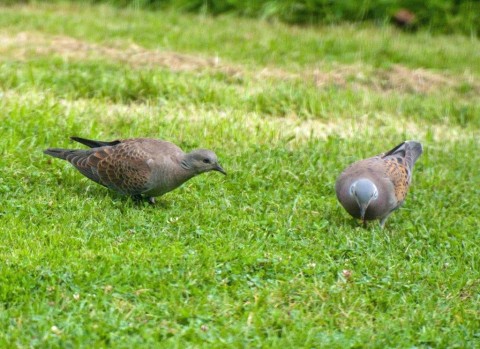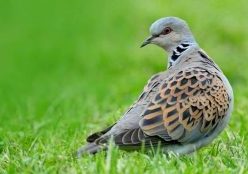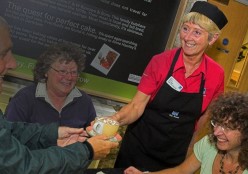Supplementary feeding of turtle doves, as with many other granivorous (seed-eating) birds, can be an important source of nutrition. Turtle doves are generally ground feeders, although you may see them on a bird table. It is very important to practice good hygiene routines to minimise disease risk – otherwise feeding your turtle doves could inadvertently make their situation worse.
Operation Turtle Dove uses a seed mix that contains oil seed rape, white millet and canary seed, but other mixes containing small seeds or kibbled sunflower hearts will also be suitable.
Tips for feeding turtle doves safely
- Clean and disinfect feeders and feeding sites regularly. Suitable disinfectants that can be used include a weak solution of domestic bleach (5% sodium hypochlorite) or other specially-designed commercial products. Always rinse feeders thoroughly and air-dry before re-use.
- Empty and air dry any bird baths on a daily basis as the disease can live in water.
- Provide a little food regularly (rather than a large amount occasionally) as disease can build up on the food when it is left in the environment.
- Move the feeders around to avoid a build up of disease.
- Scatter seed thinly on the ground rather than in piles where disease can build up.
Photo credit (top right): Juvenile and adult turtle doves – D Norman via the OTD Hotline.









